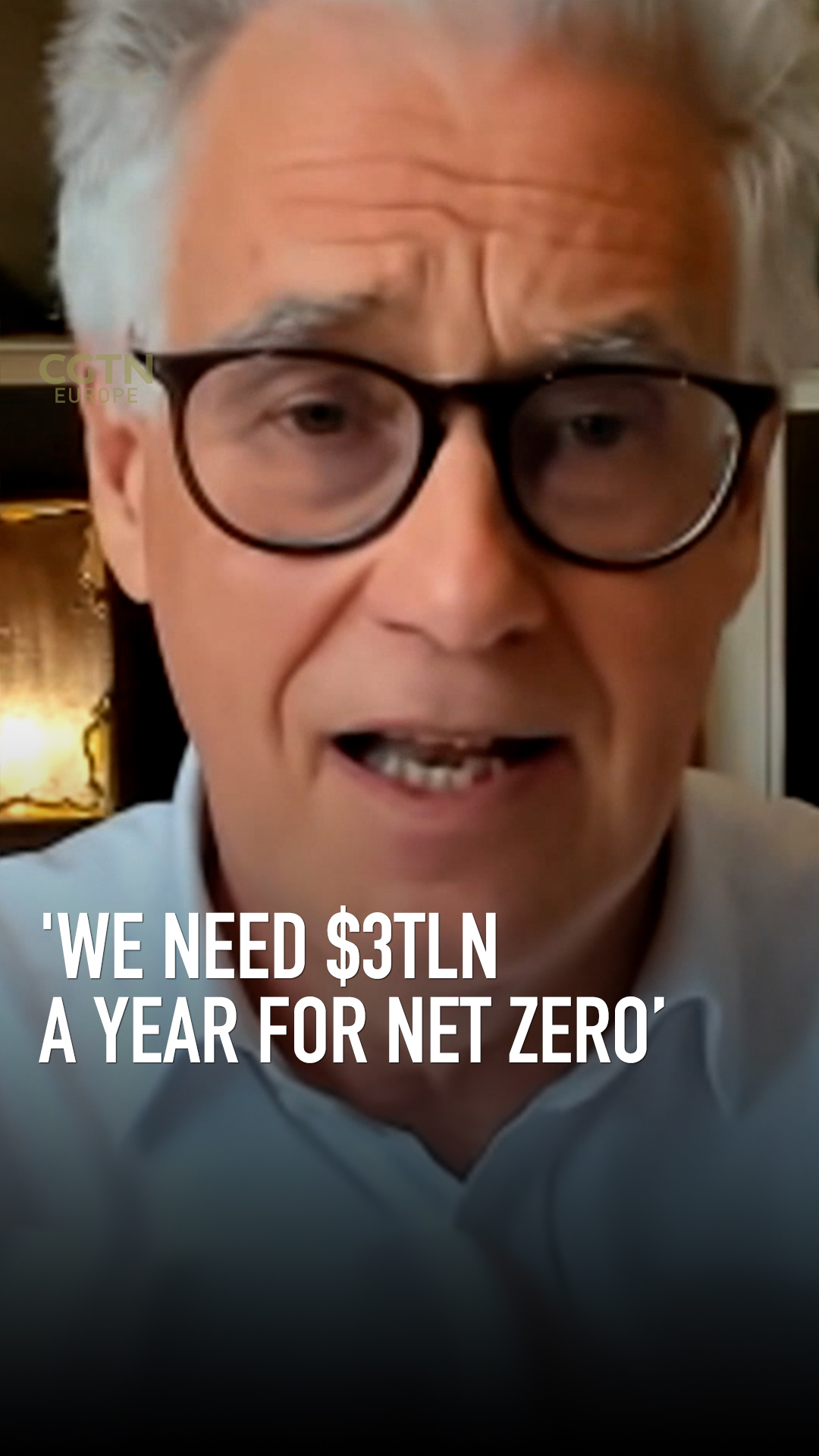
The Energy Transitions Commission is urging for more investment pumped into renewable energies and away from fossil fuels./ CFP
The Energy Transitions Commission is urging for more investment pumped into renewable energies and away from fossil fuels./ CFP
Carbon neutrality for the world is a realistic target if investments in renewable energy triple by 2030 and countries adopt the right policies despite facing harsh economic challenges.
That is the opinion of the chair of the UK's Energy Transitions Commission (ETC) who released a report on Tuesday outlining what the world's economies should do to reach net zero.
The report by the London-based international think tank outlined their long-term vision for a global green future, stating that $3.5 trillion is needed every year until 2050; up from the current $1trillion.
Adair Turner told CGTN that this investment is crucial to help avert the "potentially catastrophic effects of climate change."
"These sums of money, they sound massive," he said. "People look and say, 'oh goodness, $3 trillion.' The global economy is an economy of over $100 trillion of GDP. The world invests each year over $25 trillion of GDP.
"So one's got to just find a way to make sure that out of that $25 trillion, rather than a trillion a year today, by 2030, three trillion a year is being spent on all the things that we need to create the zero carbon economy of the future.
"It doesn't actually need an increase in the global savings rate. It just needs a reallocation of investment towards these green zero carbon investment opportunities."
The ETC is a global coalition of leaders from across the energy landscape committed to achieving net zero emissions in line with the Paris climate objective of limiting global warming. Their report says the finance to reach these targets must come from businesses, investors, governments and philanthropists. It adds that there is enough money globally to fund this green transition.
Turner, a former Director General of the Confederation of British Industry and the first chairman of the Climate Change Committee, fully supports this view from the report, but warned the finance had to be in the best sectors to succeed.
"The report says there is enough money, but that investment will only occur with the right forceful policies and they are different policies in different parts of the world," Turner added.
"In the world outside China, for instance, we are not yet seeing renewables built at the pace required, and that's not really a shortage of finance, at least in the rich developed world. It's barriers to the rollout of renewables, things like planning and permitting systems, which slow down the pace at which renewables are built. Or it's the lack of a distribution grid to which renewables have to connect.
Turner believes despite China's energy transition outpacing most other countries more can be done to move away from the dominance of construction on economic plans as the nation recovers from the global economic downturn of recent years.
"As for the developing world, there is sometimes an actual shortage of finance available. That's where there's a big role for the multilateral development banks and national development banks lending overseas. But in each country, this transition is absolutely possible."
01:00

Europe, in particular, is facing huge economic pressures, with factors such as the ongoing Ukraine conflict, inflation and an energy crisis. Turner admits a reliance on Russian gas has caused problems but he is upbeat the momentum will continue towards greener solutions, despite the short-term scramble for fossil fuels.
"Some coal-fired power stations have re-opened, but Europe has also strongly reinforced its progress towards installing renewable energy, solar and wind," he said. "I am absolutely confident that by 2030, Europe will be using no coal at all. Almost. Maybe some in Poland, but not in Germany, not in France, not in Spain, and not in the UK."

Adair Turner is confident Europe will move away from producing coal./ David Gray/Reuters
Adair Turner is confident Europe will move away from producing coal./ David Gray/Reuters
The Paris Agreement, adopted at the climate conference in 2015, sets out a global framework to avoid dangerous climate change by limiting global warming to well below 2 degrees Celsius and pursuing efforts to limit it to 1.5°C.
With COP28 coming up in Abu Dhabi in December, does the world require extra policy and regulation to ensure these temperature limits are fought for?
"What we need is a reinforcement of the determination of the world to set tighter targets," Turner said. "COP 28 is the process of international diplomacy and gets people together and energizes them to make stronger commitments, commitments to start phasing down oil and gas, as well as coal commitments, to accelerate the installation of renewables."
Subscribe to Storyboard: A weekly newsletter bringing you the best of CGTN every Friday